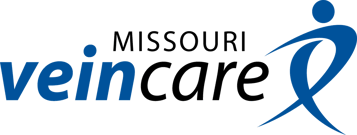The Link Between Weight and Vein Health | Expert Insights

Maintaining optimal vein health is crucial for overall well-being, and various factors can influence the intricate balance of our circulatory system. In this exploration, I delve into the connection between vein conditions and weight, shedding light on how being overweight can impact vein health and discussing the implications of venous hypertension.
Venous Hypertension: Unraveling the Medical Complexity
The intricate network of veins coursing through our bodies plays a pivotal role in ensuring efficient blood circulation. When blood flow is impeded, it causes venous hypertension. Venous hypertension, characterized by elevated pressure in the vein circulation, can be due to both vein conditions and excess weight.
Vein conditions, such as vein reflux, are known culprits in causing venous hypertension. However, what might be surprising is that being overweight or morbidly obese can also contribute significantly to this medical condition. The repercussions of both scenarios lead to the same endpoint—venous hypertension.
Understanding the Impact of Excess Weight on Vein Circulation
In individuals grappling with obesity, the excess weight creates a unique set of challenges for vein health. The circulation pathway, which should seamlessly transport blood from the legs to the heart, encounters obstacles due to the pressure exerted by the excess weight. This obstruction results in the pinching off of blood vessels, leading to a buildup of pressure in the leg veins. The consequences are often visible in the form of swelling, tenderness, and soreness in the legs. Additionally, individuals often experience redness in both calves, a manifestation of venous hypertension-induced stagnant blood flow.
Vein Treatments and Weight Considerations
Interestingly, the symptoms exhibited by individuals who are overweight bear a striking resemblance to those with vein reflux or vein disease. However, here's where a crucial distinction lies—people with obesity have minimal to no vein reflux and therefore do not benefit from vein treatments. The critical treatment recommendation is to lose weight. I recommend a low-carb diet such as Atkins, and begin a daily calore-burning program which may, but does not have to include exercise. Those who are limited by their activity should seek help from a trainer and possibly begin exercising in a swimming pool.
The Impact on Blood Clot Risk: A Weighty Concern
Beyond the visible symptoms, being overweight poses an additional risk in the realm of vein health—increased susceptibility to blood clots. The compromised blood flow in the legs due to the pressure exerted by excess weight becomes a potential breeding ground for clot formation. Slow blood flow, a known risk factor for blood clots, heightens the likelihood of clots in individuals carrying excess weight.
The Road to Recovery: Vein Health and Weight Loss
Recognizing the interplay between weight and vein health underscores the importance of moderation and balance in your life. For individuals seeking improvement in vein circulation, addressing excess weight becomes a pivotal step. Weight loss not only alleviates the pressure on leg veins but also restores normal blood flow, significantly reducing the risk of dangerous blood clots.
Encouraging lifestyle modifications, including a balanced diet and regular physical activity, not only contributes to weight loss but also fosters, not just cardiovascular wellness, but overall health and well-being in general.


